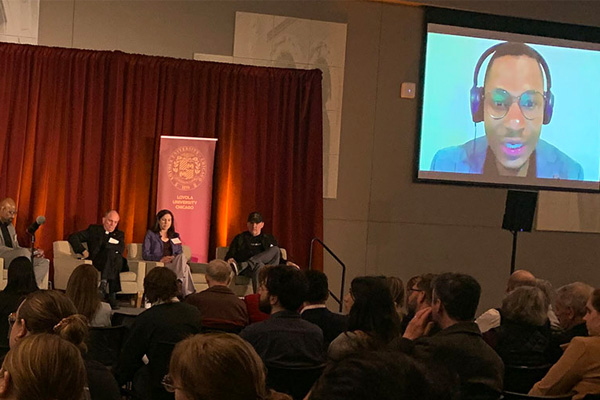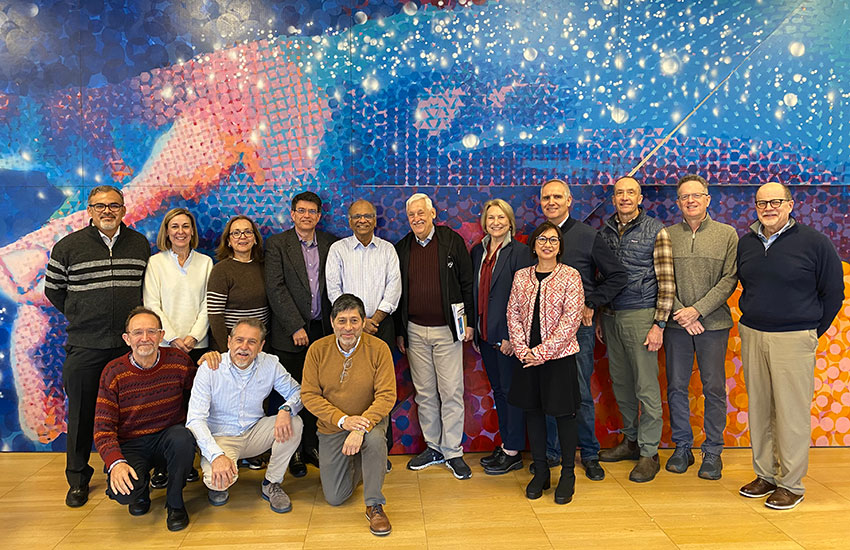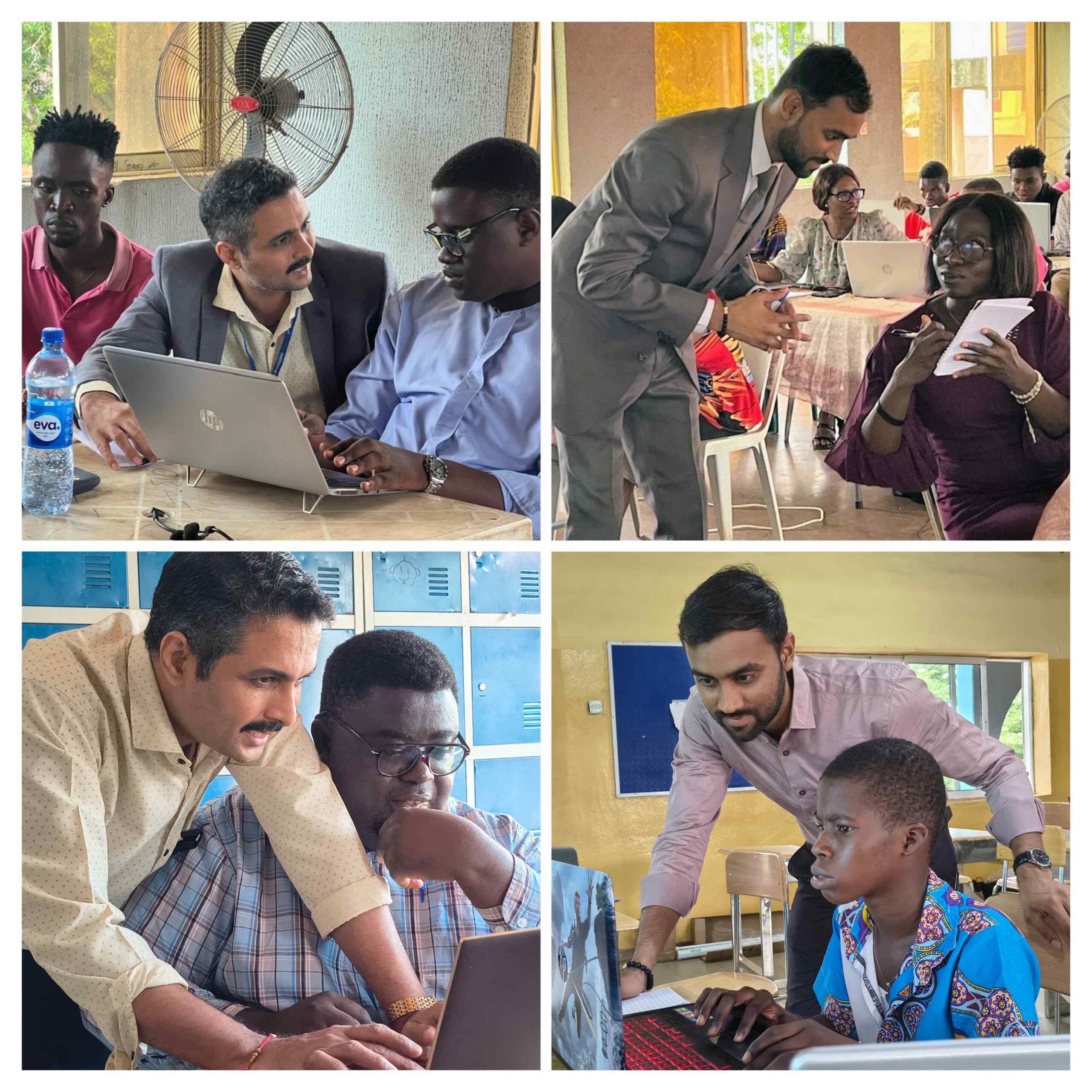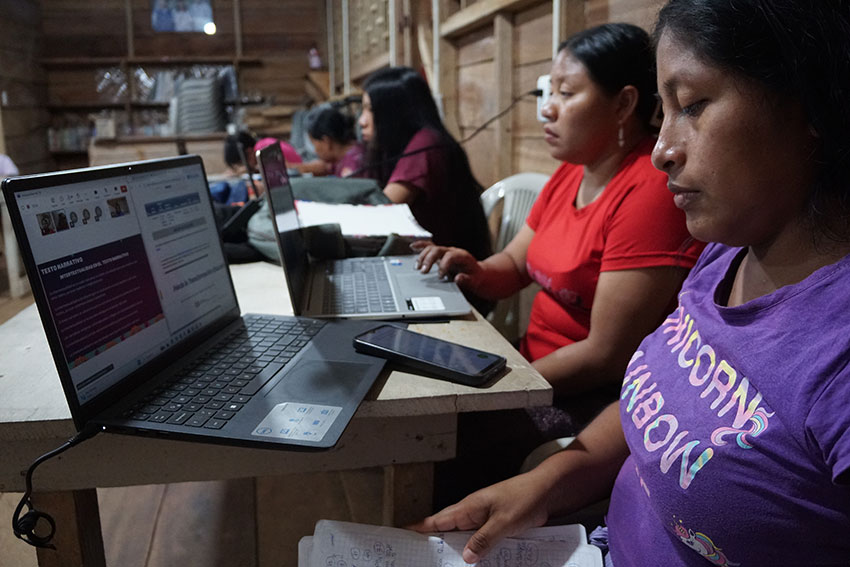Loyola’s 2023 Climate Change Conference
On March 16, 2023, Loyola Chicago’s annual Climate Change Conference examined how climate change impacts global human migration. Nearly 300 people gathered on campus for the event, and almost 400 tuned in virtually. Steve Bynum of Chicago Public Media served as the moderator.
Filmmaker Michael Nash delivered the conference’s keynote presentation, discussing what he learned while working on his award-winning film Climate Refugees.Nash said when he came up with the idea for the film, he aimed to discover and share the human face of climate change. He and his crew traveled the world, visiting 48 countries to document the lives of people displaced by climate-driven disasters, seeing how climate-driven natural disasters directly affect disproportionately to women, children and those living in poverty.
Nash shared a film clip of an interview with a man from the smallest UN-recognized nation in the world, Tuvalu. Located more than 2,000 miles west of Papua New Guinea in the Pacific Ocean, Tuvalu consists of nine small islands at serious risk of vanishing beneath rising seas. Siaosi Finiki, the Tuvalu citizen, shared a simple and important message. “Think of us because we are human.”
Following the keynote presentation, panelist Yves Umuhoza shared his experiences as a Burundian refugee and eco-entrepreneur. Umuhoza explained that young people in refugee camps typically lack access to education, financial aid, and other crucial forms of support. These limitations make it extremely difficult for refugees to pursue careers and improve their situations. Despite these challenges, Umuhoza led a solar energy project in Tongogara Refugee Camp, founding a refugee-youth-led organization called Assorted Energies International (AEI).
Fr. Tom Smolich, the second panelist, shared his perspective as the international director of the Jesuit Refugee Service (JRS), the only global ministry in the Society of Jesus (the Jesuits). JRS approaches refugee crises through human, pedagogical, and spiritual lenses, as Fr. Pedro Arrupe outlined 40 years ago. The organization is currently serving almost one million refugees across 57 countries. From caring for communities and the Earth to strengthening advocacy networks and adaptation techniques, JRS does vital work directly related to Loyola’s mission as a Jesuit institution.
Shelly Culbertson spoke third. Culbertson is the associate director of the Disaster Management and Resilience Program at the RAND Corporation. As a researcher and international policy expert, Culbertson had a critical perspective on policy and post-disaster recovery. “All forms of migration intersect in complex ways,” she said. “It’s an interaction of violence, vulnerability, poverty, and human decisions. Massive population growth in combination with poor urban planning and lack of investment in agricultural resilience impacts climate-related migration.”
In the conversation on the situation of migrants under migration policies, Culbertson outlined five essential steps that leaders need to focus on:
- Reducing the impact of climate-driven disasters.
- Developing national and international frameworks for managing migration.
- Targeting U.S. global leadership and foreign assistance.
- Improving migration processes and pathways.
- Gathering better data about migration.
Another solution Fr. Smolich suggested is providing a work permit to every refugee, “I think this would be the thing that changes and liberates so many people in this situation. It would enable people to have a legal livelihood, making a real difference in giving people stability.” Culbertson added, “If we could design something that doesn’t trap people in camps and dependency for years but allows them to integrate and support themselves, that would be a much better system. Allowing migrants to get a job, go to school, and rent a house would be more helpful than trying to push them through failing legal systems.”
Another way to improve the lives of refugees is by elevating their voices. “There is a need for refugees to be at the center of decision-making. If we look at the actual work being implemented within refugee settlements by outside powers, there is often no accountability. The inclusion of refugees is paramount, yet is still very limited,” Umuhoza said.
An overall takeaway from the conference was that mass climate migration is inevitable, but we have the chance to mitigate the challenge that refugees face. Globally, leaders can prepare for the future of climate migration by listening to refugees, improving migration policies, increasing refugee autonomy, and removing barriers that prevent refugees from realizing their full potential and contributing to their communities.
Click here to view a video of the full conference on Loyola Chicago's YouTube channel.







